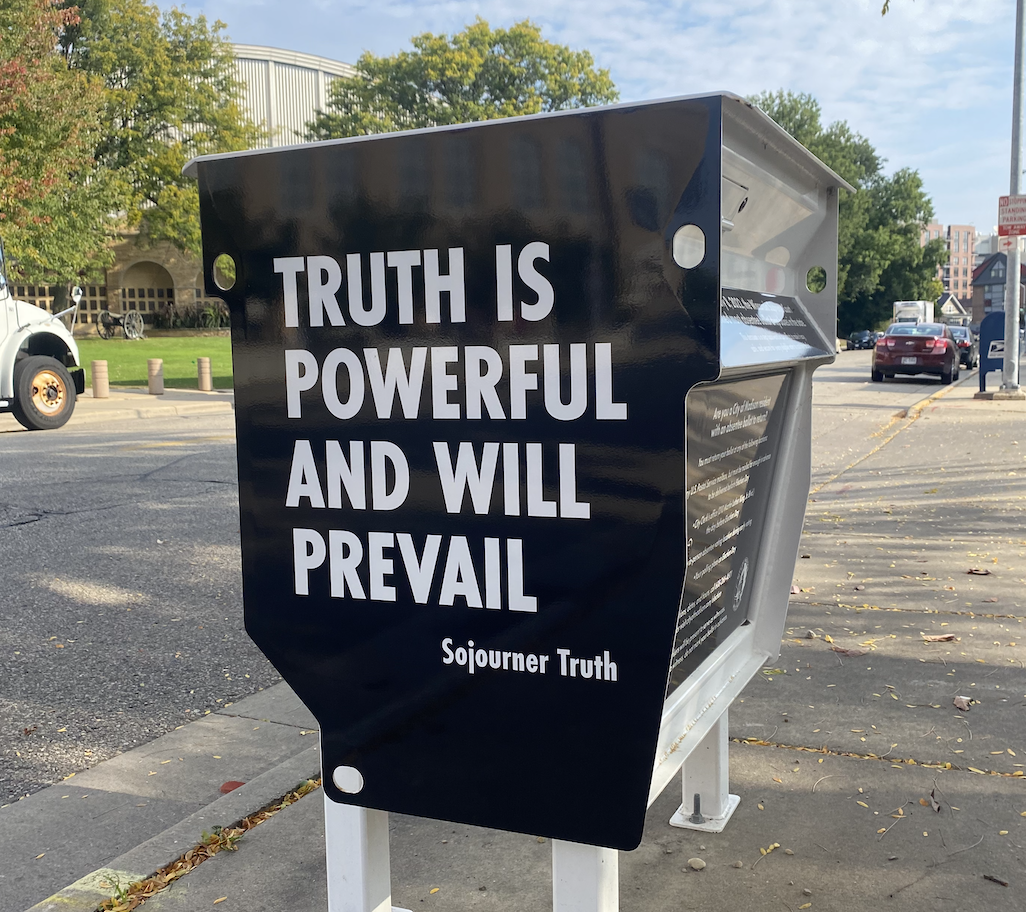Despite years of legal volleys between the University of Wisconsin and the Roman Catholic Foundation of UW, the contentious issue of funding religious groups with segregated fees is even further from resolution. The university and Student Services Finance Committee have taken every step necessary to ensure RCF-UW does not receive segregated fee funding for myriad of reasons — no "additional significant components," not enough students on their governing board and a general opposition to funding religious organizations. For the university, proper interpretation of the First Amendment is key.
RCF-UW has called it something else — religious discrimination. Until recently, the St. Paul's website listed nearly every article, letter or e-mail written concerning their funding status as evidence of UW's deliberate targeting of the group. They do have a point: UW has repeatedly asserted funding RCF-UW would be a violation of the Establishment Clause of the First Amendment, yet they make no qualms about travel grants for the Muslim Student Association.
The legal question, "Is it constitutional?" is convoluted enough that a cursory examination provides no answers. When the matter was first explained to me last year by then RCF-UW spokesperson Tim Kruse, he said the group was well-supported in its claim for funding by a clear reading of the Establishment Clause in the First Amendment. My initial thought was, "What part of that is 'clear'?"
The Establishment Clause states, "Congress shall make no law respecting an establishment of religion." Supreme Court Justice David Souter provided further interpretation in a 1994 Supreme Court decision dictating that government should not prefer one religion to another, or religion over non-religion.
Being a firm believer in the separation of church and state, I looked through Supreme Court cases regarding everything from student fees to the Establishment Clause to "limited public forums." Despite my best effort to find a smoking gun that strips state funds from a religious organization, at this point, nearly every interpretation of the First Amendment speaks in favor of RCF-UW.
First off, the segregated fee system is technically a "limited public forum," meaning that while it encourages a public forum on a range of issues, it does have some discretion as to what can be allowed into the forum. While the content or subject matter being discussed can be limited — for instance, if we decided to remove religion from the forum completely — a group cannot be thrown out based on its viewpoint alone. If the organization of segregated fees was arranged to exclude the subject of religion altogether, it would be constitutional. However, since it allows that subject into the public forum, it cannot simply eliminate one group from the equation based on its viewpoint — in this case, RCF-UW cannot be denied funding simply because it promotes a Christian viewpoint.
Therefore, the university, in order to justify its denial of RCF-UW, must provide evidence this funding would result in a violation of the Establishment Clause and, therefore, be unconstitutional. In this case, the Lemon test comes into play.
The Lemon test developed a three-point system to determine whether state support of religion violates the Establishment Clause. RCF-UW certainly satisfies the first point, which says the government's action must have a legitimate secular purpose. An educational public forum, of which RCF-UW is a mere participant, would seem to fit that description. The next two are more subjective: The government's action must not advance or inhibit religion, nor can it result in an "excessive entanglement" between religion and the state. While the third point is debatable in this case, funding RCF-UW could be interpreted as advancing religion by subsidizing their practices. Yet, the Lemon test has not been used in cases regarding the Establishment Clause since 2000, and it seems what was once a standard measurement may be falling out of practice and acceptance. In reality, the only way to truly evaluate the constitutionality of this practice is to follow the specific case law regarding student fees.
Enter Scott Southworth. UW Board of Regents v. Scott Southworth and Rosenberger v. Rector and Visitors of University of Virginia both upheld the student fee system under the condition that those funds be distributed in a viewpoint-neutral manner.
And that's the one flaw to funding RCF-UW. While it's nice to claim we can fund any speech we want as long as it's viewpoint-neutral, that's easier said than done. Amazingly, when the U.S. Supreme Court ruled in favor of the Board of Regents, three justices didn't even enforce the viewpoint-neutral clause, choosing to accept UW's claim of neutrality. However, the majority provided that caveat and remanded the decision for further rulings. If viewpoint neutrality is found to be an impossibility or that certain funding decisions were carried out with some personal bias or group-specific criticism — which could also apply to the more recent SSFC rulings denying eligibility — the decision could be overturned along with the entire segregated fee system.
And this is the real center of dispute, not religion. The members of RCF-UW may feel UW administrators have some agenda to squelch the voice of a prominent religious voice on campus. Yet, UW's real concern is the destruction of the public forum they've worked so hard to protect, which is likely why the university settled out of court with RCF-UW in the first place. It may seem like an attack on free speech, but it's a broader defense of the First Amendment.
At the same time, those detractors of RCF-UW must understand that religion is not always some boogeyman waiting to creep up from under the foundation of this nation and subvert our basic freedoms. Certainly, there have been instances where the religious doctrine in the Bible has led political leaders to support legislation purely on scripture rather than public welfare. Furthermore, some politicians have sought to insert Christian ethical concerns into every branch of government. In these cases, the delineation between religion and government must be crystal clear. However, allowing one religious group, along with a range of secular causes, to participate in the sort of public discourse that the First Amendment guarantees us is something to be encouraged, not vilified.
The debate over RCF-UW is unlikely to end anytime soon and may indeed result in a final denial of funding. However, what both sides must realize is while the friction over religion is justified in most circumstances, this is one situation where its significance is blown far out of proportion. The sooner both sides step off their respective rhetorical crutches and evaluate constitutionality rather than the role of religion itself, the sooner we can patch the crack in this public forum.
Jason Smathers ([email protected]) is a senior majoring in history and journalism.







